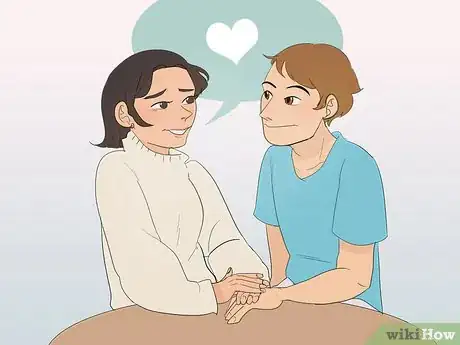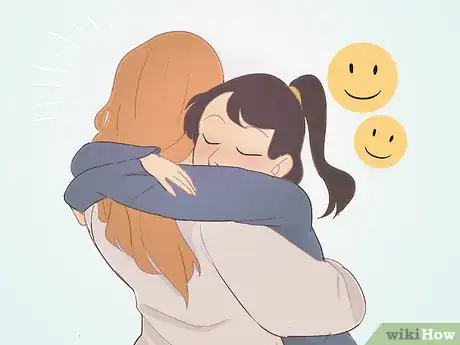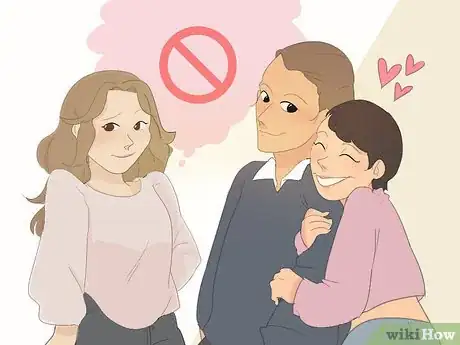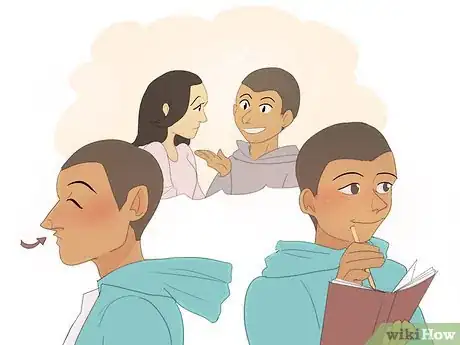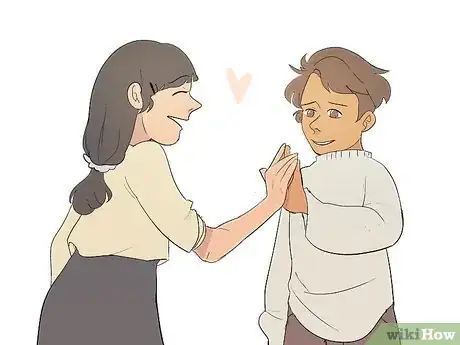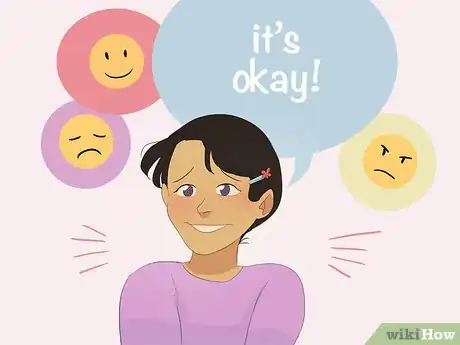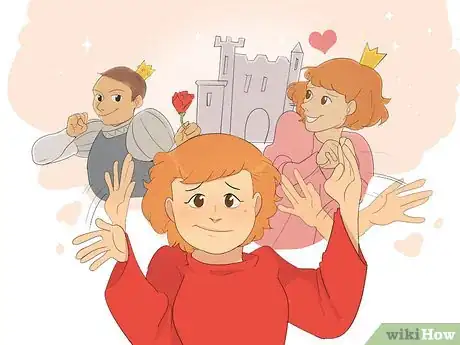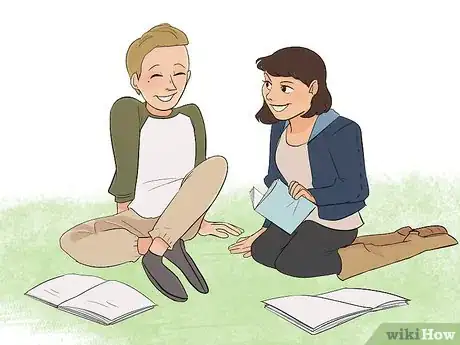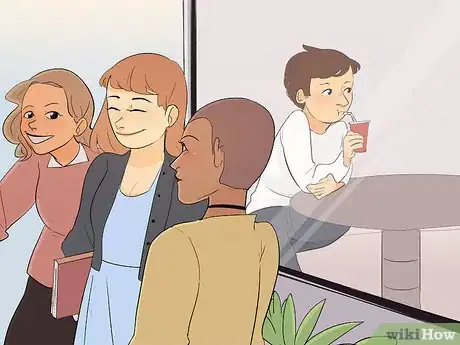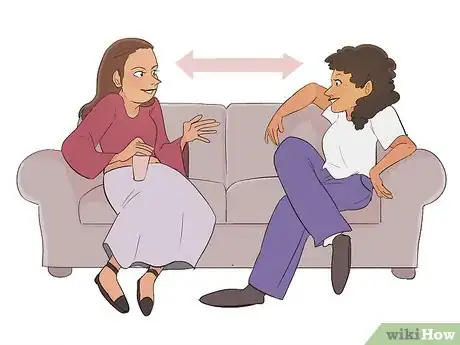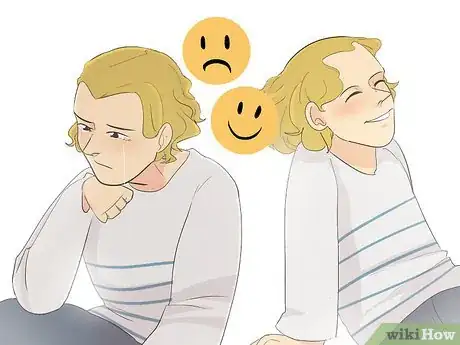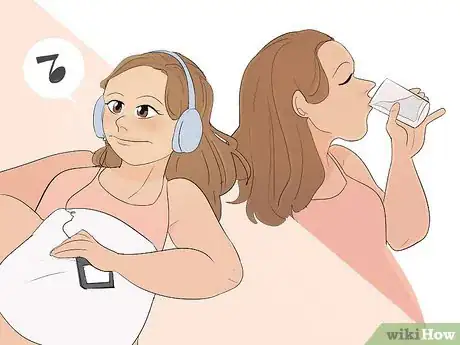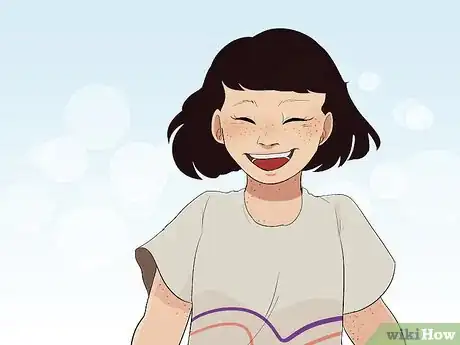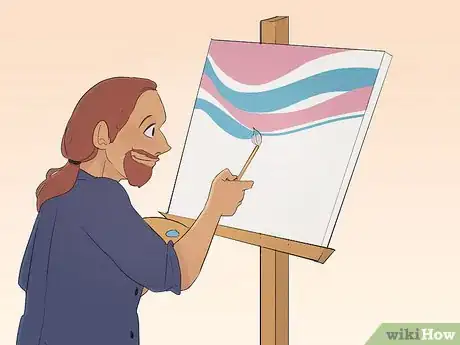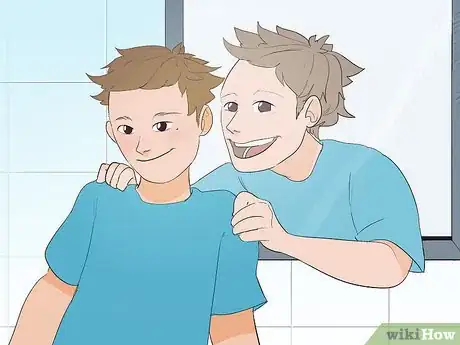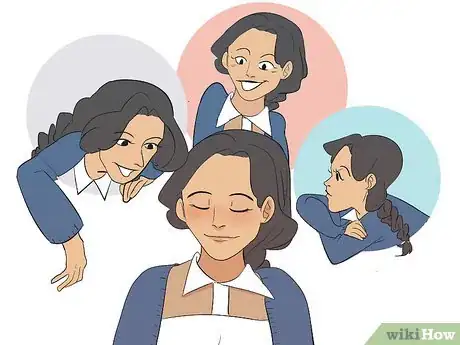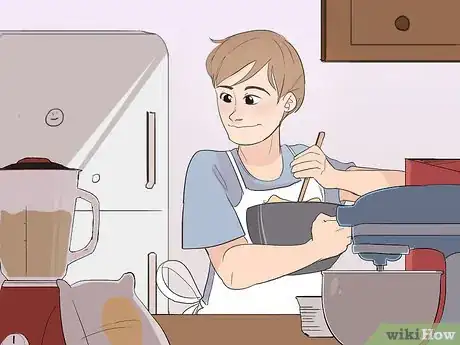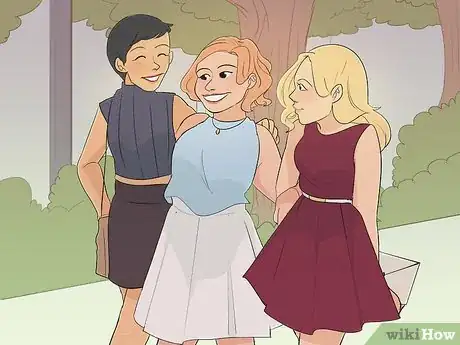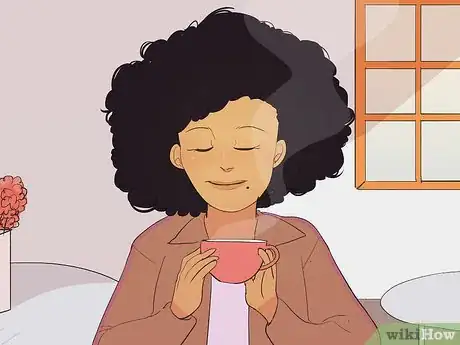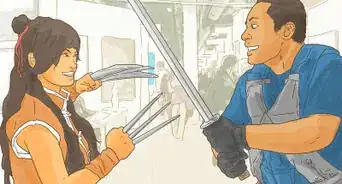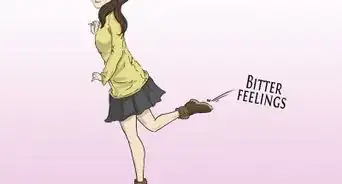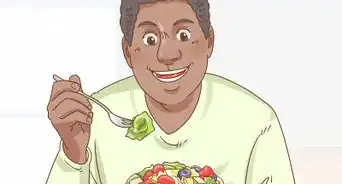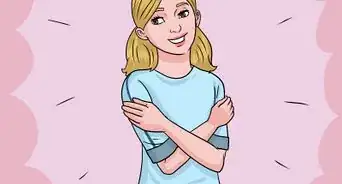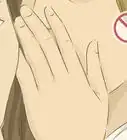This article was co-authored by Laura Bilotta. Laura Bilotta is a Dating Coach, Matchmaker, and the Founder of Single in the City, her dating and relationship coaching service based in Toronto, Ontario, Canada. With over 18 years of experience, she focuses on helping singles date more intentionally, encouraging them to let go of negative patterns so that they can attract the love that they deserve. Her experience, skills, and insights have led to thousands of successfully united over 65,000 singles through events and one-on-one matchmaking coaching sessions. She has been the host of The Dating and Relationship Show on Global News Radio 640 Toronto (AM640) for 6 years and is known as The Hookup Queen of Clubhouse; her popular singles club, Single in the City, has over 95.5K members who regularly join in weekly dating and relationship-focused rooms.
There are 33 references cited in this article, which can be found at the bottom of the page.
wikiHow marks an article as reader-approved once it receives enough positive feedback. This article has 24 testimonials from our readers, earning it our reader-approved status.
This article has been viewed 1,386,977 times.
Getting over a crush on a best friend can take time. Preserving your friendship is important, but you'll need time on your own to deal with the overwhelming emotions and move on. In some ways, you may always love and care for your friend: that just means your love was real. But by examining your emotions in a healthy way and taking steps to move forward, you can overcome the initial heartbreak and appreciate your friendship for all it is.
Steps
Communicating with Your Friend
-
1Tell your friend you have a crush if you need closure. Letting your friend know how you feel might set you free from emotional pressure and pain. You won't have as many questions about how they feel, whether they reciprocate your feeling, or how to read into moments with them. You won't have to deal with "what-ifs" or what could have been because you'll have your closure.
- Closure is especially important if you want to move on from this crush and feel ready to date other people.
- Talking to your friend will require vulnerability. This takes courage because you might face disappointment. It's an important communication skill, however, and something you'll need in future relationships.[1]
- If you don't tell your friend you care for them, they might never know the extent of your feelings. Letting them know can help them understand your friendship and support you, if needed.[2]
-
2Reveal how you feel if the friendship has changed. If feelings are left unsaid, you might distance yourself from your friend or act differently around them without noticing. In response, your friend might be unsure what's happened. They might worry that they did something wrong or that you don't care for them anymore. Opening up about your feelings can get rid of miscommunication.
- Being vulnerable about feelings is important. If you can't express your emotions, you and your friend may not feel connected or safe around each other.[3]
Advertisement -
3Don't tell your friend if they are in a relationship. When your friend is dating another person, it's usually best not to tell them about your feelings. Telling them you like them could bring conflicting emotions into the friendship and introduce distance. Instead, wait until they are out of a relationship or until you do not feel obliged to act on the feelings.
- Don't tell them immediately after they break up with their significant other. This will come off as callous and unsympathetic. Give them time to heal.
-
4Talk about your feelings in-person. If you're nervous, you might be tempted to reveal your feelings over text or online messaging. But having serious conversations happen much better in-person. Being able to see and hear the other person will leave less room for miscommunication. You'll see each other's body language and be able to respond immediately.[4]
- Try a few deep breathing exercises before you have the conversation to get rid of nerves.[5]
- Write out your feelings before you tell them, if you feel overwhelmed. This will give you an outlet and help you express your emotions in a healthy way.[6]
-
5Let them know how deeply you care about them. Sometimes when people reveal romantic feelings, the recipient may worry that you're only interested in dating them. If they don't reciprocate the feeling, they might wonder if you're still interested in a friendship. Make it clear that you appreciate your relationship with them regardless of their response. How you tell your friend about your crush may determine their reaction.
- For example, if you tell them that you care about them, they react sympathetically. If you only make it seem like you want to date, they may react defensively.
-
6Accept their reaction, no matter what. If they say they reciprocate your feelings, you might feel anxious and unsure what to do next. If they say they don't, you might feel crushed. Their emotions are as valid as yours, and it is important for you to respect them. Don't argue with them or react angrily if their response isn't what you hoped for. Thank them for being honest, and distance yourself if you need time alone.
- However, even if you need less contact than before, don't ghost your friend and disappear completely. Try remembering how important the friendship was to you before you developed the crush.[7]
- Hurt, grief, and pain are all part of grieving. Don't suppress your emotions or feel ashamed. It's all part of the healing process.[8]
- If your feelings cause significant distress and you're unable to move on, you may be dealing with depression. Talk to a psychologist or therapist.
Staying Friends, If Possible
-
1Separate fantasy from what actually is. Your crush might linger if you daydream about what could be, but holding onto your fantasies will only lead to more pain. Accept the reality of the situation and your feelings of attraction equally. Gradually avoid thinking about what your relationship would be like if it could only work out.[9]
- Don't dwell on the past or worry about the future. Instead, ground yourself in the present.[10]
- Instead of building up a fantasy life, work on yourself. Set goals in your work or hobbies, spend time with loved ones, and work on self-improvement to love the life you have.
-
2Appreciate your friendship for what you have. Your friendship with this person can still be meaningful, even if you can't pursue a romantic relationship with them. Think about all the good times you've had with this person and the positive qualities they have. Have gratitude that this person is in your life and that you've had the opportunity to know them.[11]
- You don't have to stop being friends, but spending time with just this person can cause you to dwell more on your feelings.[12]
-
3Spend some time apart for a while. You might need some time away from this person to work through your feelings. Tell your friend that you need space for a while. While you're spending time away from them, focus on other things, like trying a new hobby or meeting new people.[13]
- Rebuilding a friendship can take weeks or months. You may not feel "over" your crush until you find someone new. Take as much time as you need to process your emotions.
- Let your friend know why you need space so that they don't feel hurt or confused. Let them know that it isn't their fault and that you still care about them.[14]
-
4Set boundaries. If you want to fall out of love with your crush, set boundaries for yourself and your friend to avoid sparking old flames. You might avoid extended physical contact with your friend, stop flirting with them, or steer away from intimate conversations for a while. Share the boundaries with your friend (if you're comfortable) so they know to avoid those situations.[15]
- For example, you might tell your friend to hold off on the cuddling or hugging, even if they just mean it in a platonic way.
- On the flip side, you may have to hold yourself back from hugging or holding them. Let them know why you are doing this so they don't feel hurt or abandoned.
Processing Your Emotions
-
1Allow yourself to feel without restrictions. Don't bottle up your emotions. Trying to repress feelings often leads to more pain. Rather than ignoring the pain, open yourself up to the full spectrum of emotions. Grieve for what could have been. Express gratitude that this friend has been in your life. Think of the good and bad times. Whatever emotions come, accept them.
- If the emotions are too overwhelming, take a break from thinking about your friend. Relax, recharge, and revisit the situation when you're ready.[16]
- Talk to other friends or someone you trust. Getting your feelings out can keep you from dwelling on the situation. Third parties can also give you an outside perspective.
- Sometimes a good cry can be cathartic. If you need to cry, find somewhere you're comfortable and let it out.[17]
-
2Practice self-care. In the midst of these strong feelings for your friend, you may neglect taking care of yourself. But practicing self-care in this time will help you regain confidence and maintain supportive relationships as you process your emotions. Do activities that strengthen your physical and emotional well-being, and take care of your personal hygiene.[18]
-
3Let yourself laugh. Humor really can be the best medicine. Comic relief can help you de-stress and keep a light perspective in life. Watch a silly movie, read humorous novels, or visit a local comedy club. At the very least, laughter can distract you when you need time away from your thoughts.[21]
- Sometimes people use humor as a coping mechanism in hard times. Make sure that you're not using jokes to repress painful feelings.[22]
-
4Express your feelings creatively. Getting your feelings out (whether in words, art, or song) will help you collect your thoughts and process all the emotions you might be feeling. You can share your work with others, or you can just keep it for yourself. The important part is expressing yourself fully.[23]
- If you're not the creative type, start a journal. Seeing your emotions on paper will help you work through them.[24]
-
5Regain your confidence. While getting over a crush on your friend, your self-esteem may plummet. You may worry that nobody will ever love you like you wish your friend did. Believing in yourself again can help you cope with the pain and cultivate hope in the future. Write down your strengths on a piece of paper to remember when you're feeling low, and set reachable goals every day to remind yourself that you can do hard things.[25]
- Low self-esteem can be a sign of depression, which is difficult to cure alone. If you think you may be depressed, tell a loved one or see a counselor.[26]
Moving On
-
1"Date yourself" for a while. Before you get back into the dating scene, spend some time on self-understanding. Get to know yourself on a deeper level: think about your goals in life and what's important to you. Explore your strengths and weaknesses as a human being. Knowing yourself better will help you define what you're seeking in a relationship.[27]
- Falling in love might cause you to forget yourself. Re-discover who you are apart from your friend and learn to love yourself.
- Use the old relationship as a guide to figure out what qualities you like about yourself, and where you would like to grow.[28]
-
2Take up a new hobby. Getting out and learning something new will give you something else to think about besides your friend. You'll also be able to learn new skills and regain some self-confidence. Join a cooking class, volunteer at a local shelter, buy an instrument to learn, or try out an activity you've always wanted to do.
- Pick a hobby that requires a lot of time and concentration. You can then use it to escape your mind for a while and focus on something productive.
- Now is the time to revisit an activity you used to do but for whatever reason let go. Doing something you love again will help you reconnect with your inner self.
-
3Spend time with your other friends. Having a crush on your best friend can cause you to neglect other friendships. As you develop meaningful relationships with other friends, you'll gain emotional support outside of your best friend. Invite a friend over to chat, see a movie with them, or even send them a text to let them know you care.
- Don't distract yourself constantly with friends. Spending time alone is important, too. If you need some space from others for a while, let yourself have that time.[29]
-
4Go out with other people, when you're ready. Once you're ready to fall in love again, re-enter the dating scene. You don't have to fall into a serious relationship right away: date a few different people for a while and have fun just getting to know them.[30]
- Meet new people. Join a club, volunteer somewhere new, chat with a classmate or co-worker, or visit your local bar.[31]
- Recognize the qualities that you liked in your friend and look for them in others. Understand that you won't find someone exactly like your friend, however.
- Realize that your friend may not have been the one, and believe that eventually you will meet the right person and realize why things didn't work out with your best friend.[32]
-
5Accept that falling out of love takes time. Getting over a crush takes time as your heart heals. In a way, you might always love and care for this person. What matters is moving past the pain and opening yourself up to loving again, even if not for a while. Don't beat yourself up if you're still pining for this person. You can find new love in the future.
- If you're not careful, you may become bitter from the pain and start to hate your friend. Don't let yourself fill with negative emotions.[33]
Expert Q&A
-
QuestionI've been trying for years to get over my best friend. All these feelings are weighing me down with guilt, but if I tell her I'm afraid it'll be awkward and I'll lose her. What do I do?
 Paul Chernyak, LPCPaul Chernyak is a Licensed Professional Counselor in Chicago. He graduated from the American School of Professional Psychology in 2011.
Paul Chernyak, LPCPaul Chernyak is a Licensed Professional Counselor in Chicago. He graduated from the American School of Professional Psychology in 2011.
Licensed Professional Counselor Having courage and being vulnerable is important, especially in relationships. You may find that being open not only helps get rid of your guilt but may make the relationship stronger as well. If it does not work out, then at least you won't feel guilty anymore and won't spend your time on someone who does not feel the same way about you.
Having courage and being vulnerable is important, especially in relationships. You may find that being open not only helps get rid of your guilt but may make the relationship stronger as well. If it does not work out, then at least you won't feel guilty anymore and won't spend your time on someone who does not feel the same way about you. -
QuestionI might be moving away from my best friend who is also my crush we speak every day. How do I get over him?
 Paul Chernyak, LPCPaul Chernyak is a Licensed Professional Counselor in Chicago. He graduated from the American School of Professional Psychology in 2011.
Paul Chernyak, LPCPaul Chernyak is a Licensed Professional Counselor in Chicago. He graduated from the American School of Professional Psychology in 2011.
Licensed Professional Counselor Make sure to clearly tell him your concerns and feelings. He may still want to have you as a friend in his life. Technology has made connecting over long distances easier.
Make sure to clearly tell him your concerns and feelings. He may still want to have you as a friend in his life. Technology has made connecting over long distances easier. -
QuestionIs it bad to like your best friend?
 Community AnswerNothing is wrong about loving your best friend. Regardless of whether the relationship is best or meant to be, feelings are neither good nor bad. They just are.
Community AnswerNothing is wrong about loving your best friend. Regardless of whether the relationship is best or meant to be, feelings are neither good nor bad. They just are.
Warnings
- Stay away from your friend's social media. Checking up on their Instagram or Twitter constantly will make you long for them more.⧼thumbs_response⧽
- If sadness persists for a long time while you're getting over your friend, seek professional health. You may have depression.[35]⧼thumbs_response⧽
References
- ↑ https://medium.com/the-mission/how-to-embrace-vulnerability-as-your-greatest-strength-d2ac2b80ba52
- ↑ https://www.theguardian.com/commentisfree/2015/jul/10/crush-feel-relevant-information-compliment-fancying
- ↑ http://www.heysigmund.com/vulnerability-the-key-to-close-relationships/
- ↑ http://techland.time.com/2012/08/16/we-never-talk-anymore-the-problem-with-text-messaging/
- ↑ http://www.doctorshealthpress.com/general-health-articles/get-rid-of-nervousness/
- ↑ http://www.calmclinic.com/anxiety/overcoming-nervousness
- ↑ Laura Bilotta. Dating Coach. Expert Interview. 4 March 2020.
- ↑ https://steptohealth.com/cure-sadness-day-day/
- ↑ https://www.psychologytoday.com/blog/compassion-matters/201104/how-tell-the-difference-between-real-love-and-fantasy
- ↑ https://www.theguardian.com/science/2010/nov/11/living-moment-happier
- ↑ https://greatergood.berkeley.edu/article/item/how_gratitude_can_help_you_through_hard_times
- ↑ http://www.marieclaire.com/sex-love/news/a3761/being-friends-with-crush/
- ↑ Laura Bilotta. Dating Coach. Expert Interview. 4 March 2020.
- ↑ https://www.psychologytoday.com/blog/valley-girl-brain/201404/does-your-relationship-need-break
- ↑ http://www.huffingtonpost.com/entry/setting-boundaries-benefits_us_57043126e4b0b90ac27088bb
- ↑ https://tinybuddha.com/blog/why-letting-ourselves-feel-bad-is-the-key-to-feeling-better/
- ↑ http://www.medicaldaily.com/cry-it-out-6-surprising-health-benefits-shedding-few-tears-333952
- ↑ https://lifehacker.com/why-self-care-is-so-important-1770880812
- ↑ http://www.goodtherapy.org/blog/134-activities-to-add-to-your-self-care-plan/
- ↑ https://www.desert-alchemy.com/article/physical-self-care/
- ↑ https://psychcentral.com/blog/archives/2009/02/17/9-ways-that-humor-heals/
- ↑ https://psychcentral.com/lib/humor-as-weapon-shield-and-psychological-salve/
- ↑ http://innerself.com/content/personal/happiness-and-self-help/counseling/4130-express-your-emotions-through-art.html
- ↑ http://www.fulfillmentdaily.com/one-surprisingly-easy-way-get-hard-times/
- ↑ https://www.forbes.com/sites/womensmedia/2014/10/07/how-you-can-build-your-confidence-and-keep-it/#4cb73aaf25c9
- ↑ https://www.healthcentral.com/article/depression-or-just-low-selfesteem
- ↑ https://www.mindbodygreen.com/0-13353/if-you-want-to-find-love-date-yourself.html
- ↑ https://tinybuddha.com/blog/the-art-of-being-happily-single/
- ↑ http://theunboundedspirit.com/alone/
- ↑ http://www.webmd.com/sex-relationships/features/returning-dating-scene
- ↑ https://www.youtube.com/watch?v=Cac_t81C2Xw
- ↑ Laura Bilotta. Dating Coach. Expert Interview. 4 March 2020.
- ↑ http://www.goodtherapy.org/blog/from-sad-to-mad-how-suppressing-your-sadness-invites-anger-0415145
- ↑ https://www.everydayknow.com/how-to-get-over-your-crush/
- ↑ http://www.webmd.com/depression/guide/depression-symptoms-and-types
About This Article
It can be tough to have a crush on your best friend, especially if they don’t feel the same way. If a romantic relationship isn’t in the cards, it might help to get some space away from your friend for a while. Let them know that their friendship is still important to you, but you need some time to yourself. During your break, focus on things that are meaningful to you, like learning new skills, working on a hobby you enjoy, or spending time with other friends. When you are with your best friend, set boundaries to avoid rekindling your romantic feelings. For example, you might decide not to spend too much time alone with them, or steer clear of platonic hugs and cuddles for a while. It can take a while for a crush to die down, so be patient with yourself. Consider writing your feelings down, talking to another trusted friend about them, or even letting your best friend know what’s up. For more tips from our co-author, including how to appreciate the friendship you have with your best friend, read on!
